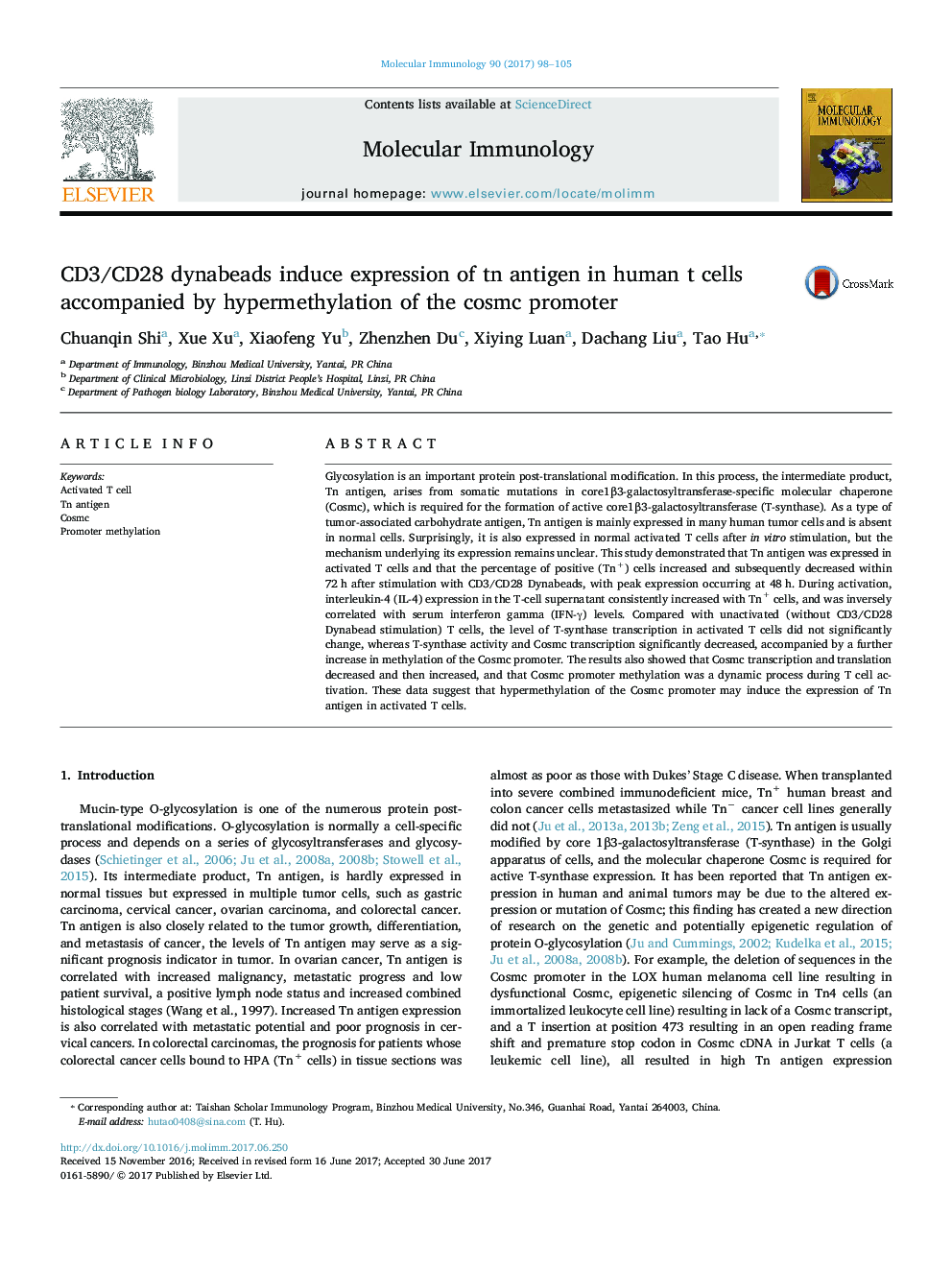| Article ID | Journal | Published Year | Pages | File Type |
|---|---|---|---|---|
| 5591885 | Molecular Immunology | 2017 | 8 Pages |
Abstract
Glycosylation is an important protein post-translational modification. In this process, the intermediate product, Tn antigen, arises from somatic mutations in core1β3-galactosyltransferase-specific molecular chaperone (Cosmc), which is required for the formation of active core1β3-galactosyltransferase (T-synthase). As a type of tumor-associated carbohydrate antigen, Tn antigen is mainly expressed in many human tumor cells and is absent in normal cells. Surprisingly, it is also expressed in normal activated T cells after in vitro stimulation, but the mechanism underlying its expression remains unclear. This study demonstrated that Tn antigen was expressed in activated T cells and that the percentage of positive (Tn+) cells increased and subsequently decreased within 72 h after stimulation with CD3/CD28 Dynabeads, with peak expression occurring at 48 h. During activation, interleukin-4 (IL-4) expression in the T-cell supernatant consistently increased with Tn+ cells, and was inversely correlated with serum interferon gamma (IFN-γ) levels. Compared with unactivated (without CD3/CD28 Dynabead stimulation) T cells, the level of T-synthase transcription in activated T cells did not significantly change, whereas T-synthase activity and Cosmc transcription significantly decreased, accompanied by a further increase in methylation of the Cosmc promoter. The results also showed that Cosmc transcription and translation decreased and then increased, and that Cosmc promoter methylation was a dynamic process during T cell activation. These data suggest that hypermethylation of the Cosmc promoter may induce the expression of Tn antigen in activated T cells.
Related Topics
Life Sciences
Biochemistry, Genetics and Molecular Biology
Molecular Biology
Authors
Chuanqin Shi, Xue Xu, Xiaofeng Yu, Zhenzhen Du, Xiying Luan, Dachang Liu, Tao Hu,
